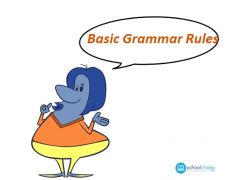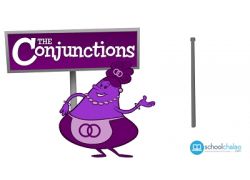Tutorial Library
Learning Point
Active and Passive voice
Active Voice
The active voice is the "normal" voice of an English sentence. Intransitive verbs (verbs with no direct object) are always in the active voice. Transitive verbs are usually in the active voice:
|
subject |
verb |
|
|
Johnny |
laughed. |
|
|
Anton |
got up |
late. |
|
People |
drink |
water. |
In the active voice, the subject is the person or thing responsible for the action of the verb.
All tenses are possible in the active voice, as well as all sentence types, positive, negative or question.
Use of active
The active voice is the "default" voice in English. All intransitive verbs can only be in the active voice, and all transitive verbs usually are active voice - unless we deliberately make them passive.
In spoken English, we almost always use active voice. It is the natural choice, more precise and generally shorter.
In written English, active voice is usually easier and more interesting for the reader. Passive voice can sound dull and bureaucratic, and is typical of official writing. In the interests of "plain English" that the average person can understand, many governments now encourage civil servants to write in the active voice.
The active voice is:
- direct and specific
- uses fewer words - always a good thing
- dynamic
|
Subject |
+ |
Auxiliary verb |
+ |
Main verb |
+ |
By |
+ |
Agent |
|
|
Optional |
|
||||||
The auxiliary be is conjugated in all tenses. The main verb is always the past participle. The agent is the original "doer" of the action.
Look at some examples:
|
Subject |
Auxiliary verb be |
Main verb |
By |
|
|
I |
am |
employed |
by |
Apple. |
|
You |
will be |
woken |
|
at 6. |
|
It |
will have been |
finished |
|
by then. |
|
We |
have been |
notified |
by |
Head Office. |
|
You |
are being |
transferred |
|
next week. |
|
They |
will be |
paid. |
|
|
Notice above↑:
- auxiliary be can be conjugated for all persons and tenses
- main verb is invariable: past participle
- if there is an agent (Apple, Head Office), it is introduced by by
Agentless passive
The subject of an active sentence "does" the action. In a passive sentence, we express the doer (or agent) through a by phrase (the long passive) or, very often, we remove it completely (the short passive). In the following example, the agent is "the Allies":
|
Active |
The Allies firebombed Dresden. |
|
|
Passive |
Long |
Dresden was firebombed by the Allies. |
|
Short |
Dresden was firebombed. |
|
The short passive is also known as the "agentless passive". Soon you will see how useful it can be.
Negatives and questions
The table below shows examples of the passive with negative sentences, question sentences and negative-question sentences
|
|
|
subject |
|
|
auxiliary verb |
|
main verb |
|
|
- |
|
You |
|
|
are |
not |
paid |
to watch YouTube. |
|
|
They |
will |
never |
be |
|
employed |
by us. |
|
|
? |
Are |
they |
|
|
|
|
cleaned |
regularly? |
|
Has |
your wallet |
|
|
been |
|
stolen? |
|
|
|
-? |
Is |
he |
|
|
|
not |
notified |
immediately? |
|
Will |
they |
|
not |
be |
|
dismissed? |
|
|
|
Haven't |
they |
|
|
been |
|
forgotten? |
|
Notice above↑:
- position of auxiliary be or first auxiliary for questions
- possible positions of not, n't, never to create negation
Use of the passive
When and why do we use passive voice?
There are several times when the passive voice is useful, and usually the decision has to do with the "doer" (agent) or the "receiver" of the action. For example, we use the passive when:
1. we want to emphasize the receiver of the action:
- President Kennedy was killed by Lee Harvey Oswald.
cf: Lee Harvey Oswald killed President Kennedy.
2. we don't know who did the action (the agent):
- My wallet has been stolen.
cf: Somebody has stolen my wallet.
3. we think the agent is not important or interesting:
- Our house is being painted.
cf: XYZ Company is painting our house.
4. the agent is obvious:
- I am paid weekly.
cf: My company pays me weekly.
5. we are making general statements or announcements:
- Passengers are reminded to fasten their seatbelts.
cf: The Captain reminds passengers to fasten their seatbelts.
6. the agent is everyone:
- The emergency services can be called by dialling 999.
cf: The public can call the emergency services by dialling 999.
7. we are writing formal or scientific texts:
- Potassium was added and mixed in. The solution was heated to 80°C and then allowed to cool.
cf: The technician added potassium and mixed it in. The technician heated the solution to 80°C and then allowed it to cool.
8. we want to avoid responsibility for our own actions (typically found in government reports):
- Mistakes were made and unfortunately never rectified.
cf: The Prime Minister made mistakes and unfortunately never rectified them.
The get-passive
Although we normally construct the passive with be + past participle, it is also possible (in informal language) to use get + past participle. So if France beat England at football, we could turn this to passive and say "England were beaten by France" (be-passive) or "England got beaten by France" (get-passive). And we might also add: "But France will get thrashed by Russia."
For formal English and exams you should use the be-passive, but in informal language people sometimes use the get-passive.
Forms of passive
The passive voice is not a tense itself. But for transitive verbs each tense, as well as other verb forms such as infinitives and participles, can be produced in the passive voice. Some of the more complicated tenses (mostly perfect continuous) are rarely used in the passive, but they are possible.
Here are some examples of the passive voice with many of the possible forms using the verb sing:
|
Infinitive |
to be sung |
|
Perfect infinitive |
to have been sung |
|
Participle |
sung |
|
Perfect participle |
having been sung |
|
Gerund |
being sung |
|
Simple |
Continuous |
Perfect |
|
|
Present |
am, are, is sung |
am, are, is being sung |
have, has been sung |
|
Past |
was, were sung |
was, were being sung |
had been sung |
|
Future |
will be sung |
will be being sung |
will have been sung |
Active and Passive Examples
The table below shows example sentences in active and passive voice for the basic tenses as well as various other verb forms, including infinitives and participles.
|
Active |
Passive |
|
|
Present Simple |
How does one pronounce his name? |
How is his name pronounced? |
|
Present Continuous |
Ati's helping Tara. |
Tara's being helped by Ati. |
|
Present Perfect |
Kid has served dinner. |
Dinner has been served. |
|
Present Perfect Continuous |
The police have been watching that house for weeks. |
That house has been being watched for weeks. |
|
Past Simple |
They didn't fix my phone yesterday. |
My phone wasn't fixed yesterday. |
|
Past Continuous |
They were interrogating him when I called. |
He was being interrogated when I called. |
|
Past Perfect |
I wondered why they hadn't invited me. |
I wondered why I hadn't been invited. |
|
Past Perfect Continuous |
She wasn't sure how long they'd been following her. |
She wasn't sure how long she'd been being followed.* |
|
Future Simple |
They will hang him at dawn. |
He will be hanged at dawn. |
|
Future Continuous |
They won't be questioning him when you get there. |
He won't be being questioned when you get there. |
|
Future Perfect |
They will have repaired your car by 7pm. |
Your car will have been repaired by 7pm. |
|
Future Perfect Continuous |
They'll have been treating her for exactly three months tomorrow. |
She'll have been being treated for exactly three months tomorrow.* |
|
Infinitive |
I dont want anyone to disturb me. |
I don't want to be disturbed. |
|
Perfect infitive |
They seem to have taken it. |
It seems to have been taken. |
|
Participle |
I saw the cat eating it. |
I saw it being eaten by the cat. |
|
Perfect participle |
Having finished my work, I went home. |
My work having been finished, I went home. |
|
Gerund |
I insisted on them paying me. |
I insisted on being paid. |
|
Going to |
Is he going to sing Thriller at the party? |
Is Thriller going to be sung at the party? |
|
Used to |
Ram used to take care of everything. |
Everything used to be taken care of by Ram. |
|
Can |
They can question him for six hours. |
He can be questioned for six hours. |
|
Could |
It could have badly hurt you. |
You could have been badly hurt. |
|
May |
The papers say they may release him. |
The papers say he may be released. |
|
Might |
Somebody might buy it. |
It might be bought. |
|
Must |
Passengers must wear seat belts. |
Seat belts must be worn. |
|
Should |
You should have told me. |
I should have been told. |
|
Ought to |
They ought to forgive him. |
He ought to be forgiven. |
Very Useful (0)
Useful (0)
Not Useful (0)
Please login to your account by completing this form
Reset Your password
Please enter the email address you signed up with and we'll send you a password reset link.
A reset password link has been generated and will be sent to you via email.
You can then follow that link and select a new password.
Completing that action will allow you to reset your password and then you can insert a new one.
Please enter the email address you signed up with and we'll send you a password reset link.
A reset password link has been generated and will be sent to you via email.
You can then follow that link and select a new password.
Completing that action will allow you to reset your password and then you can insert a new one.





